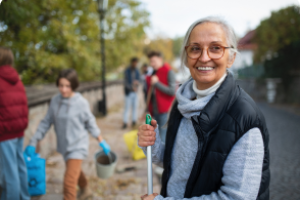
United Way of Champaign County drives community action so everyone has the opportunity to thrive.
We strengthen resilience and create brighter futures by advancing health, expanding youth opportunities, and building financial security for families.
Whenever our neighbors face challenges, United Way is there.
From our beginnings to today, we’ve stood beside communities, listening closely and responding with care. Our local roots keep us connected to the real needs here in Champaign County, while our global reach allows us to share proven solutions and scale what works.
Together, we take a comprehensive approach—mobilizing people, resources, and ideas to create lasting change.
With United Way, local impact and worldwide progress go hand in hand, ensuring stronger, more connected communities everywhere. We accomplish this mission through four key impact areas: Healthy Community, Youth Opportunity, Financial Security, and Community Resiliency.




